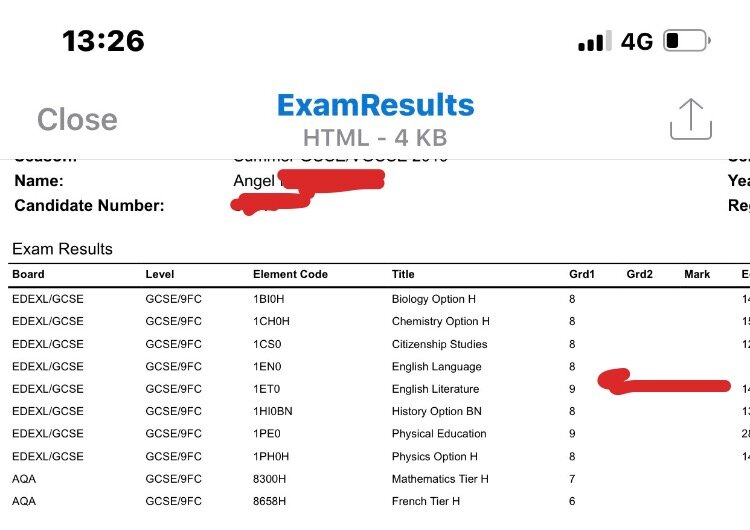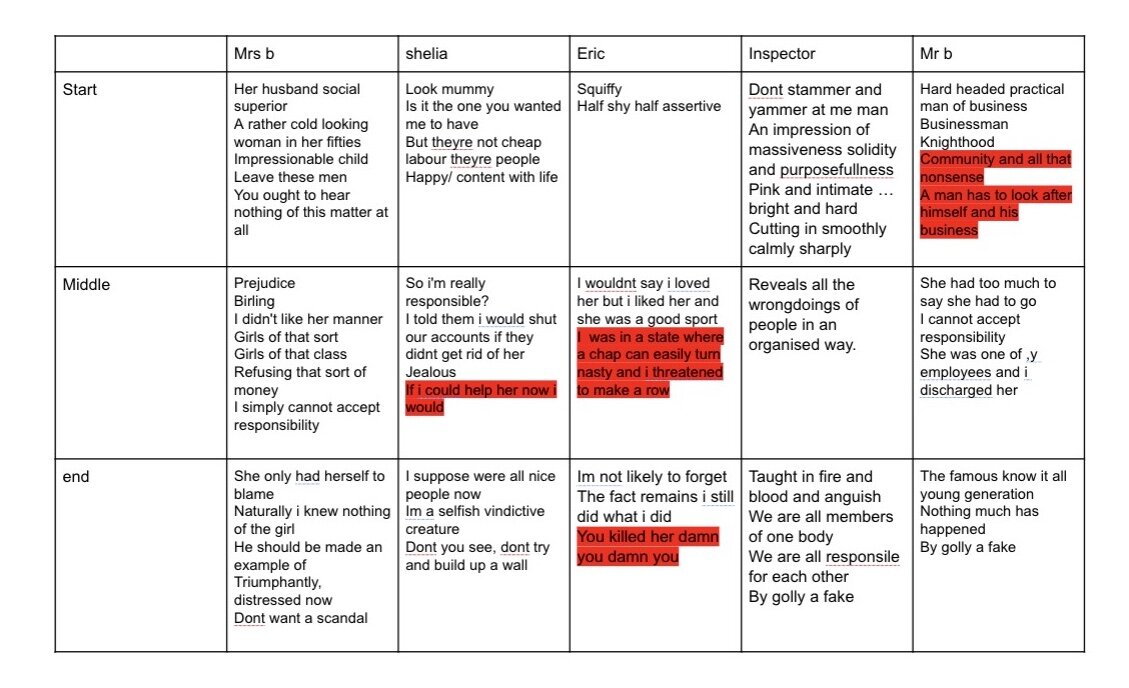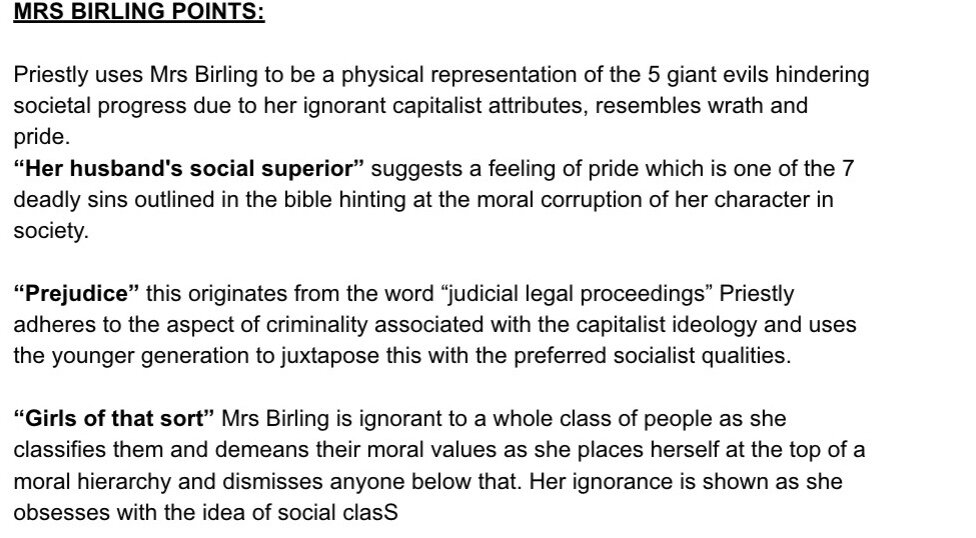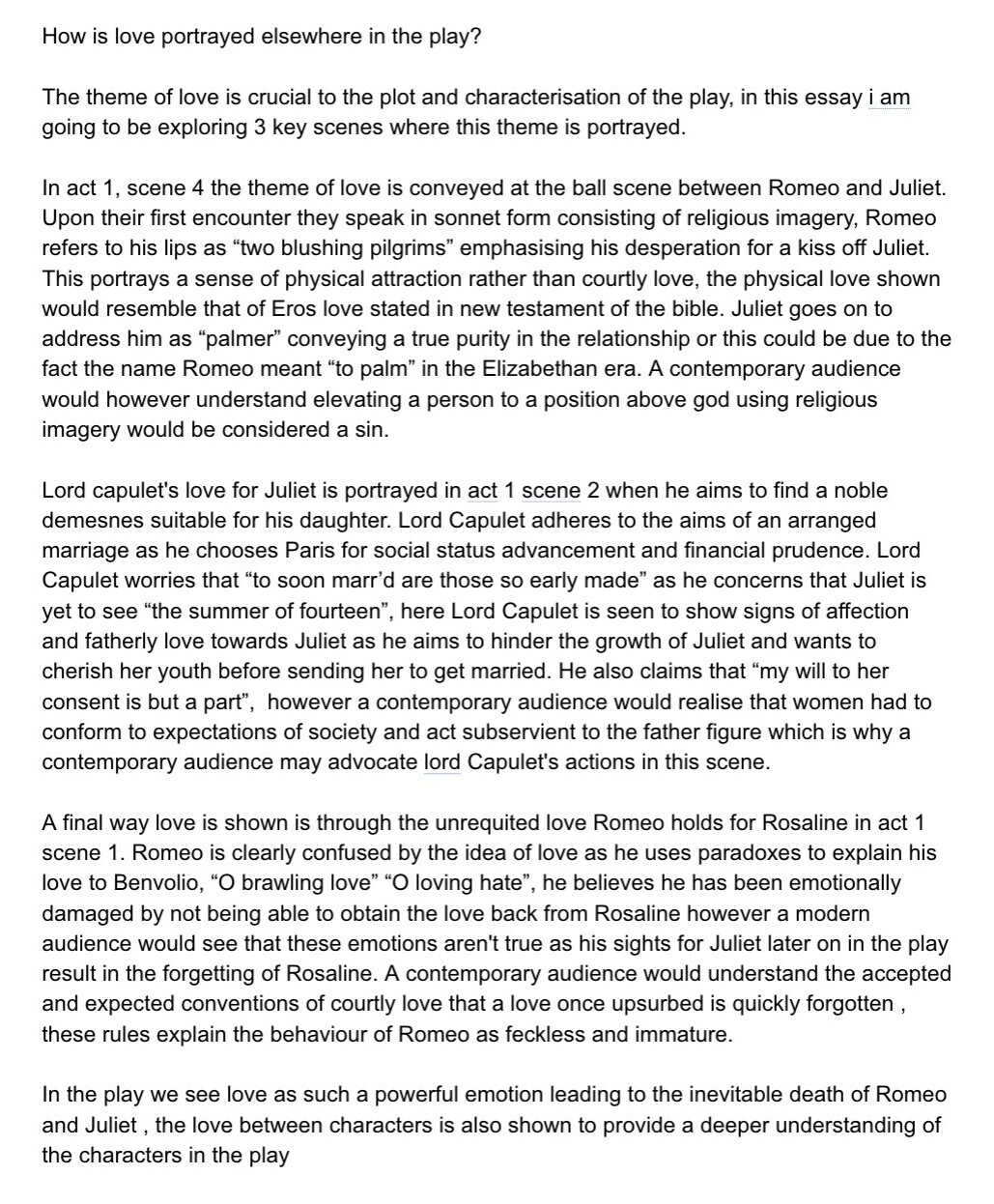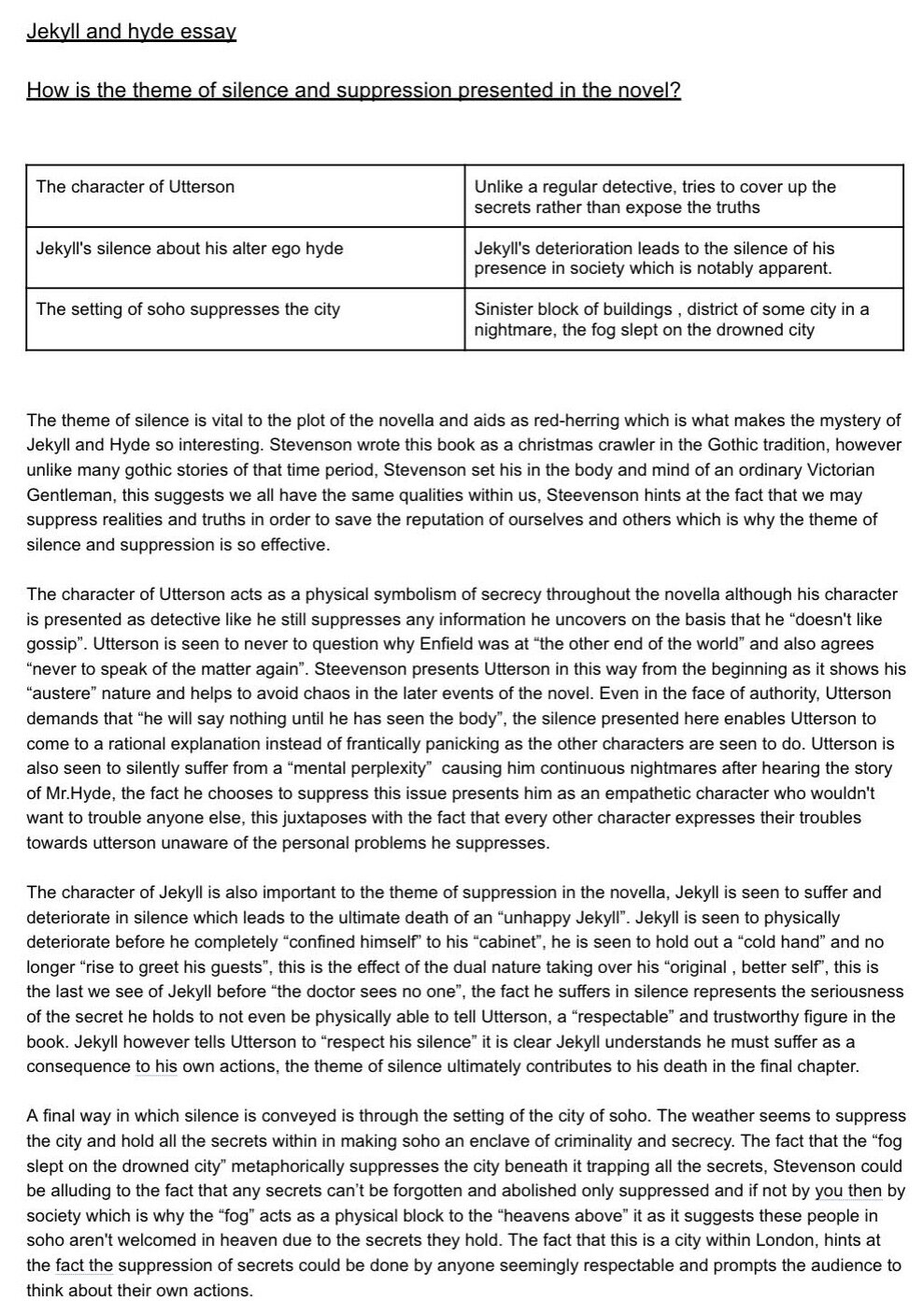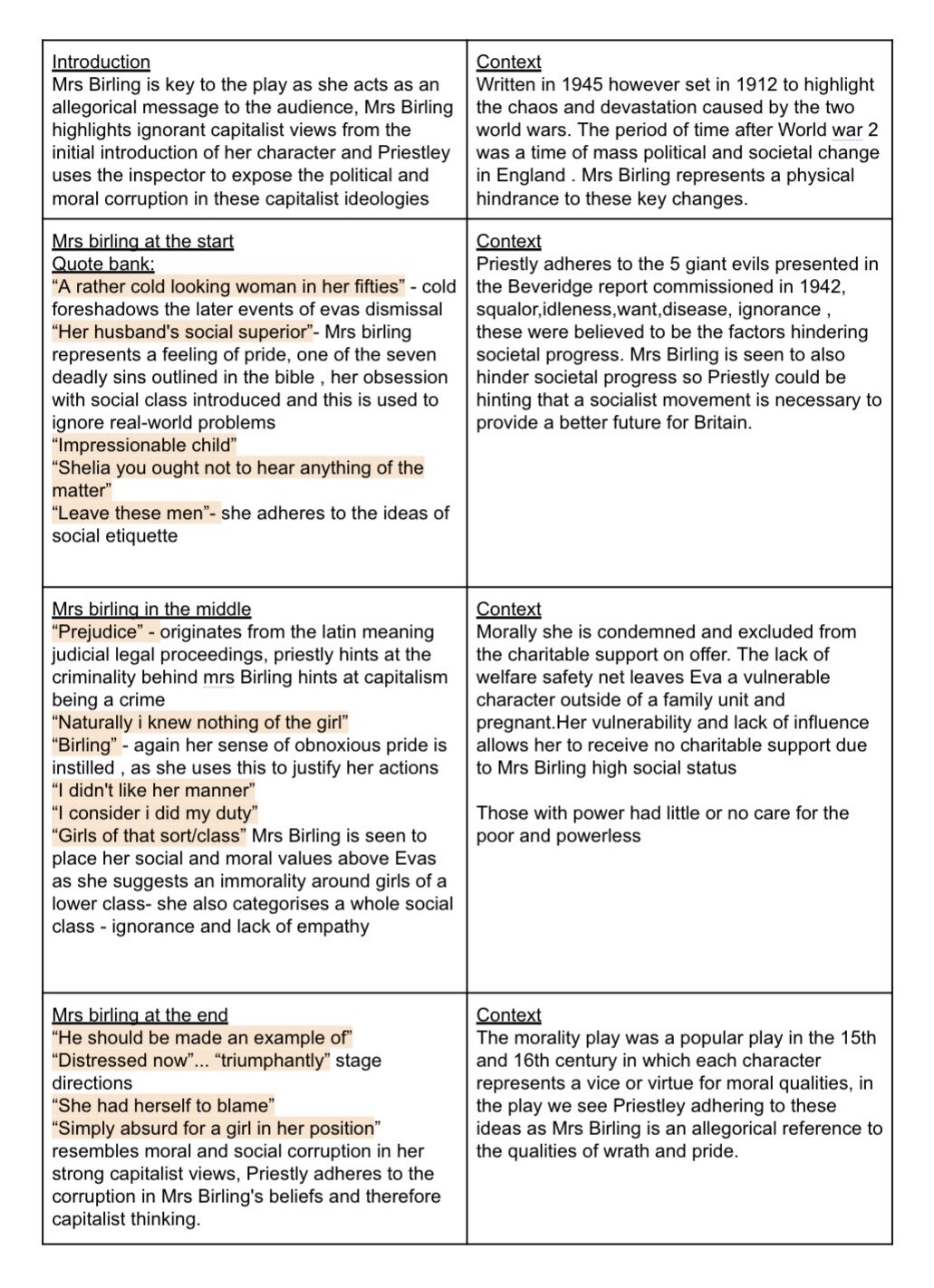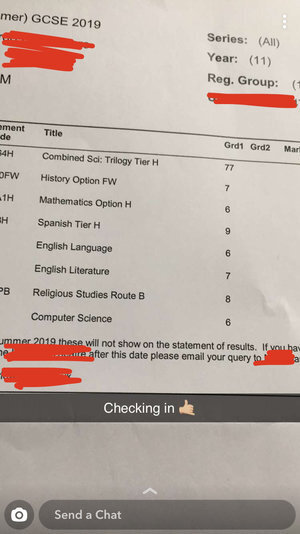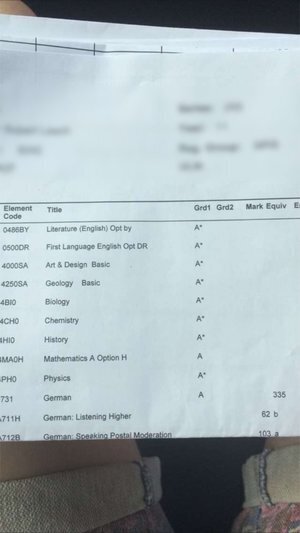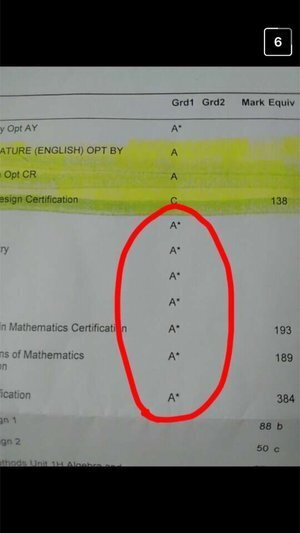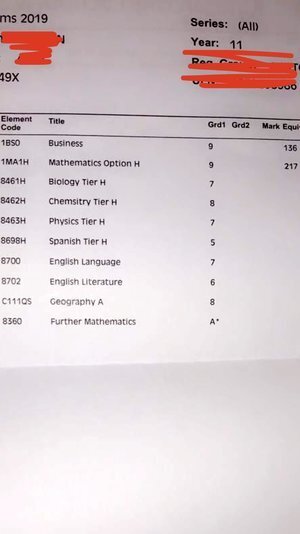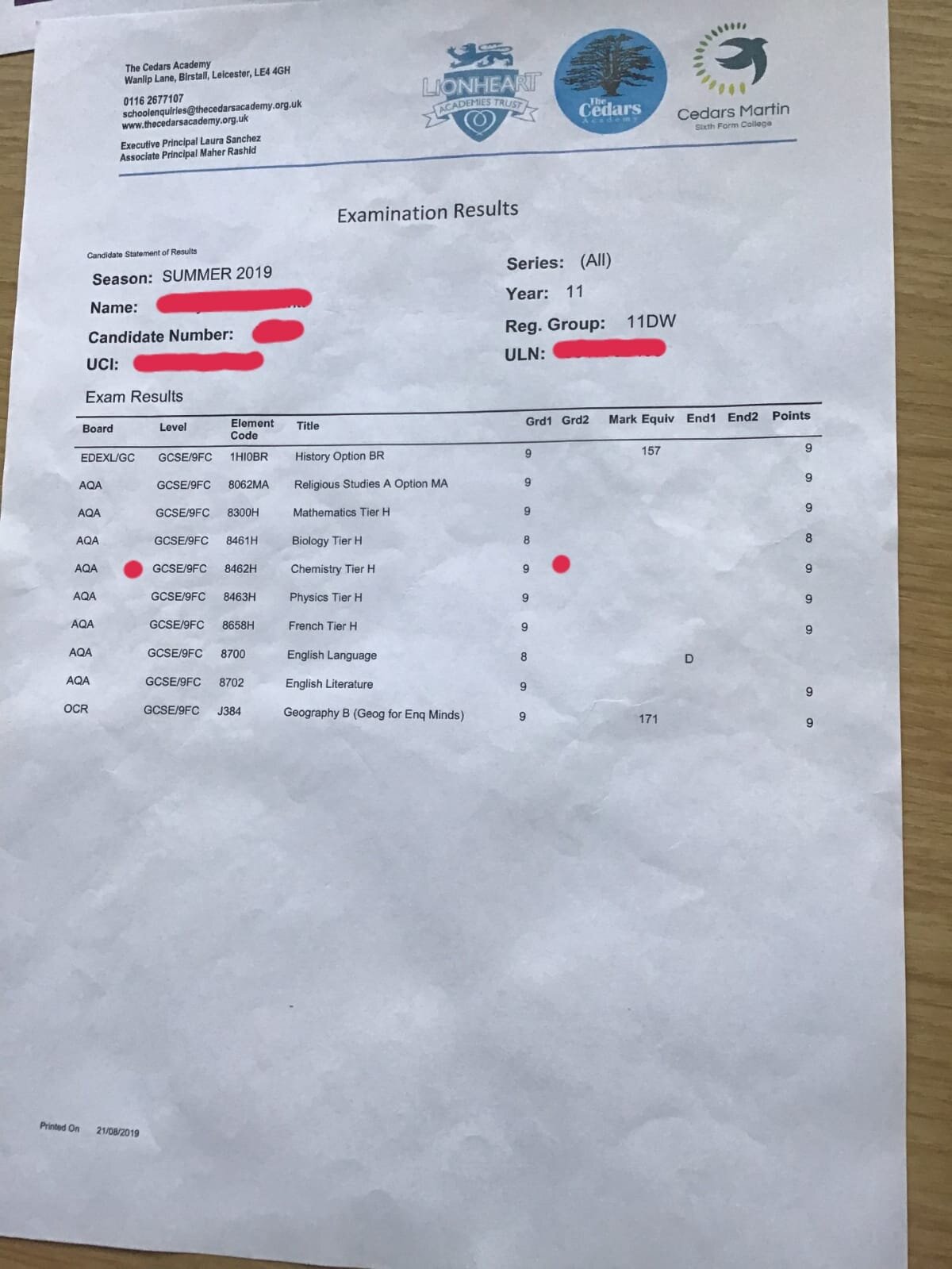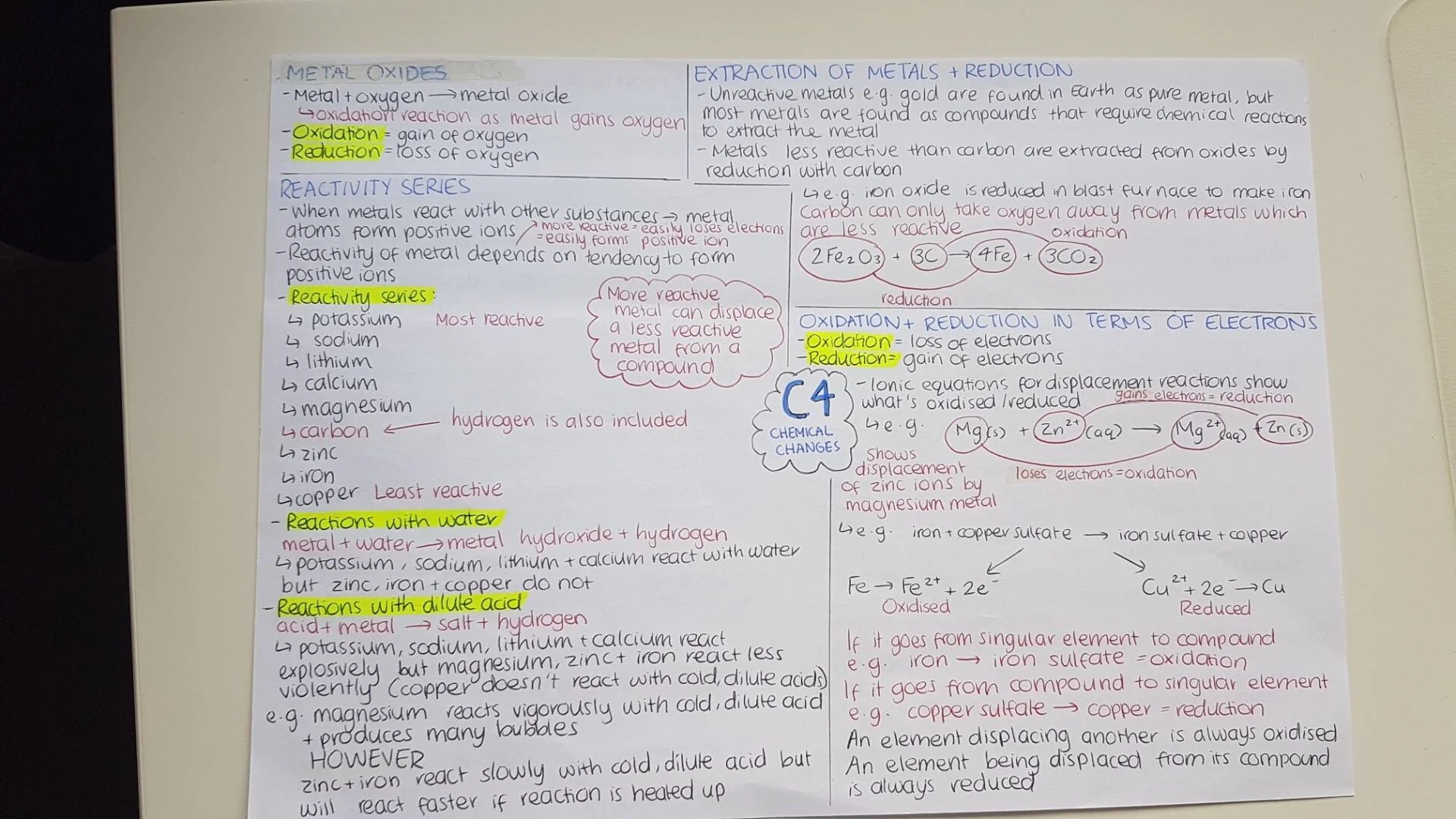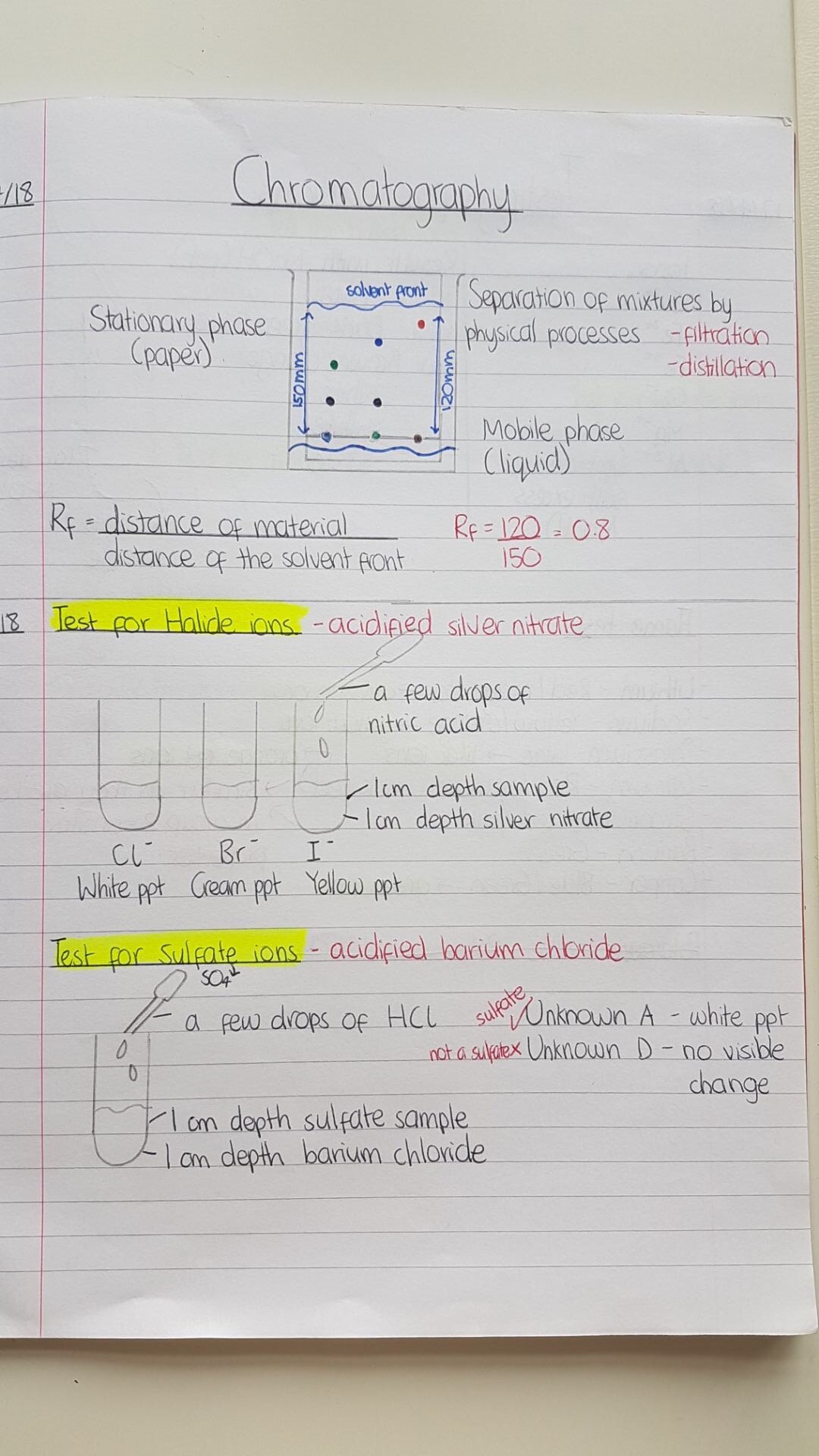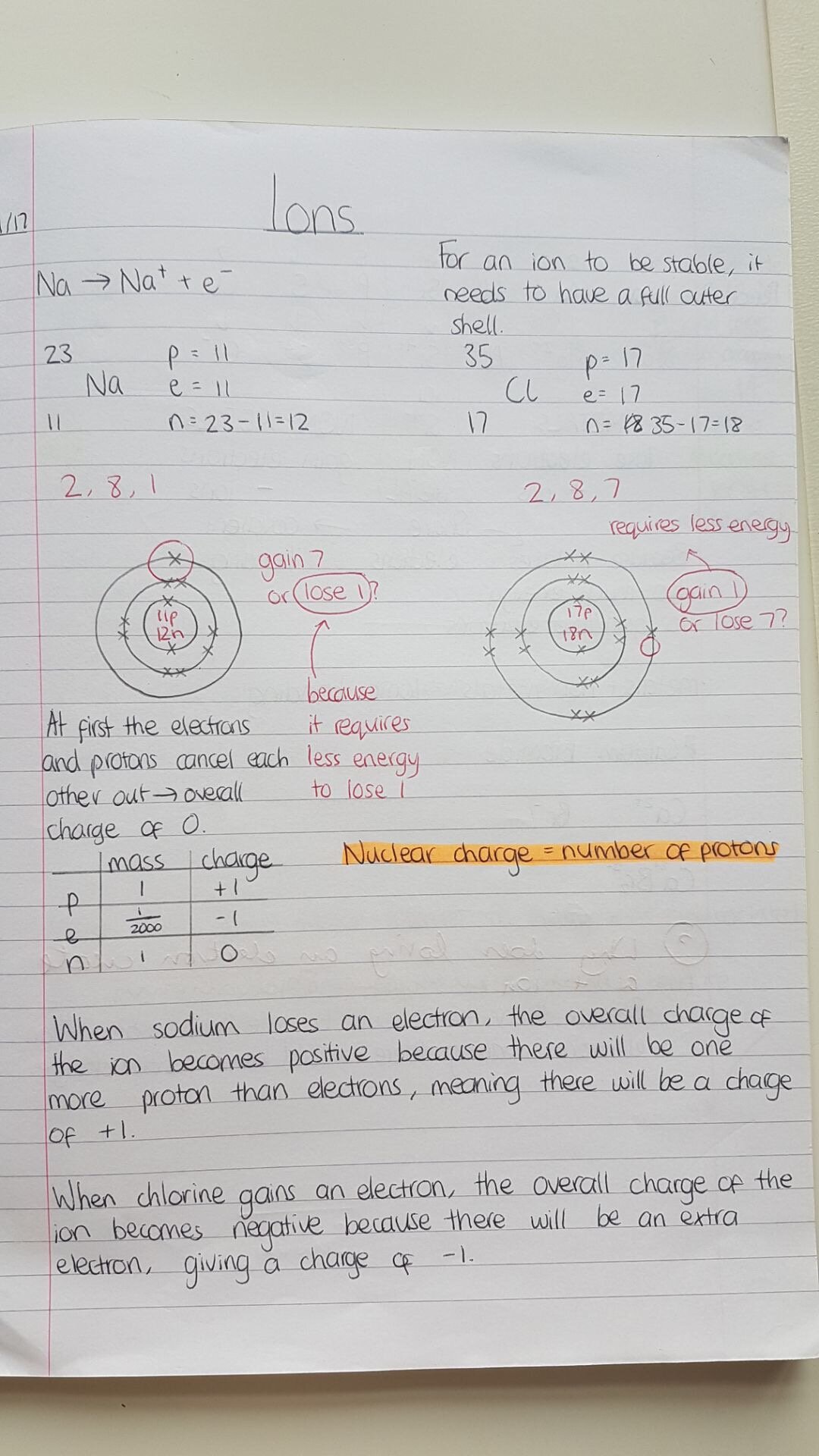My Background
I studied 10 subjects at GCSE level, I also played netball and basketball during exam season. As a result, I had to balance my time effectively in order to have sufficient revision time and also time for self care (which is just as important.)
Personally I found the fact that we had to learn 3 books, 15 poems and context for the English Literature exams very overwhelming which made it difficult for me to know where to start my revision.
The way I overcame this was by splitting the work into manageable tasks - which I will talk about later in the blog. My learning style is very much visual as I find myself visualising my notes in the exam, therefore I made flashcards and tables (which I will show you later) to aid me in my English Literature revision.
Classwork
In class, all I did was make sure I listened to the main points and got them down into my book as I knew I could use these for starting my revision. When you’re reading the books in class make sure you listen and actively read along otherwise you will not understand the text!
Top Tip: At the end of reading a scene, act or chapter I would usually make a short summary in my book which I could read the next lesson to keep me up to date.
In English we seemed to have more freedom in the way we structured our notes so do it in a way that benefits you not what the person sitting next to you is doing. I would usually make a timeline that I would add to after reading the next section of the book, adding diagrams would help trigger my memory about that particular scene. But do what works for you!
The Revision
Table Method
I used a table method which enabled me to remember around 40 quotes per exam. First of all, ask your teachers or check past exam questions to see what types of exam questions have been asked in the past. So for me, I did ‘An Inspector Calls’ and questions would often be focused on a character or a theme. Therefore, I divided my revision and notes into characters and themes.
Whereas, for ‘Romeo and Juliet’ I split the book up into the important scenes to enable me to understand the storyline better and memorise a broad spread of quotes from the entire play. This approach helps breaks the content up into manageable sections and makes it so much easier to learn a good number of quotes, I also used a table for the context. I’ve copied some examples below:
So first of all I would sort my quotes according to how the essay was structured, then create a blank copy of table along with it.
Top Tip: Every single morning for around 2-3 weeks I would blurt quotations for 10-15 minutes each morning. This is where you get absolutely everything you remember onto the blank table then check back with the original version you have already written out and add things you missed in another colour.
At first you will have lots of red quotes however the number should start to go down, here you can see visual progress which can be quite motivating for some people who struggle to revise.
Also, re read your books and pick out your own quotes this makes it different to everyone else in your class and will make your essay stand out to your teacher and examiner as you can make varied and different points, re reading also gives you a better affirmed understanding of the book as I found it quite hard to concentrate reading in class. Also, ask your teacher if you can borrow the book to read at home so you don't need to spend any money!
YouTube
If you're struggling to understand the plot, YouTube videos will help you get a better grasp of the whole play or novel. But, if you’re aiming for grade 8’s and 9’s, there are specific videos which I found helped the most. I have linked to them below...These 3 channels have many books and poems so just search for your book in their channel, these will really help you to start thinking on a higher level and help you qualify for the top grade bands in the exam.
I then created some wrote some structured notes. For these, I would condense the information in the video and add my own knowledge onto a single flashcard, you need to remember thousands of other students will be watching these videos so make sure to add your own quotes and opinions.
Here are a couple of examples:
Essay Plans
I often used the ‘rule of three’ to help me make quick essay plans when under time pressure in the exam. Here’s how to do it...
Whatever the question all you need to do is make 3 detailed points about it, this helps you cover a range of the text without writing too much and running out of time. So if the question is “Explore the theme of hatred” you will come up with 3 points in the play where hate is shown, demonstrate this through a quotation and then explain your point and contextualising it within the play as a whole.
Pro tip: Check the mark schemes to see how many marks are available for context as this differs from book to book and you want to make sure you don't over or under do it.
In your essay plans make sure you outline the 3 different things you would talk about depending on what theme came up in the question and decide what context you’re going to link your points to. Do this before the exam! You’ll be able to write far more quickly if you already know roughly what you’re going to say, making it up as you go wastes time and there’s a chance your essay might not flow as well as it could do.
For character based questions talk about the character at the beginning, middle and end (note: this still uses the rule of three). I allows for a detailed, well-rounded analysis of the character’s development through the novel or play.
Here is an example of a ‘Romeo and Juliet’ essay plan where I chose the 3 key scenes I was going to write about and the context to go with it:
Here’s an example of the beginning of an essay, this time on the theme of ‘love’:
Here’s another one in a similar ‘plan then practice essay format’ for ‘Strange Case of Dr Jekyll and Mr Hyde’:
Here is a more detailed character essay plan for ‘An Inspector Calls’. I didn’t always write out my plans in this much detail, many of them were short and punchy which made them easier to remember and made me feel more confident:
As you can see, the plan above includes a general introduction, you can use this introduction structure in any essay you write. I like to do this because all you need to do is memorise the basic structure and then adjust slightly to fit the character or theme you are discussing. This lets the examiner know you have a good understanding of the play/novel and sets you up for a good essay. It can also be a good opportunity to frame up the points you’re going to discuss in your essay.
Analysing Texts
In the exam you will also get some questions with text from a book you have studied, this requires you to analyse language and structure. To revise for this, find any conversation between two people in your studied book and analyse language form and structure and plan some points you could make about the characters. If you practice doing this regularly it will come more naturally to you in the exam and a section you've already analysed may come up!
The Exam
My strength in an exam is usually my memory, I never seem to forget anything. I attribute this to the repetitive ‘blurting’ revision method I use. My weak point is coming up with the three points I’m going to discuss in relation to the question which has been asked on the exam. I find this quite stressful as the time in the exam is always ticking. Nevertheless, I’d always recommend you go into an essay with a clear plan even if you do take a little longer to get clear on what points you’re going to make. Making sure your essay is clear and easy to follow is so important.
Stick to the timings of each question, which is usually between 30 and 45 minutes depending on the amount of marks. I’d recommend you’re fairly strict with yourself and move on even if you haven’t fully finished, you will usually find you will have spare time at the end to go back and add details.
Top Tip: I don't recommend completing past papers…. Hear me out, those questions pretty much have a 0% chance of coming up. Instead, I recommend you use the same format of question but change the character or theme to something which hasn't come up recently. You should absolutely use past papers to predict the trends in what the examiners ask so you can better predict what might come up, this helps when doing poetry, you can make it easier for yourself by not learning the most recent poems and focusing on those which haven’t come up.
I created essay questions by myself and completed around 10 to 15 of them. In my real exam everything I had practiced and planned came up and I was able to use my table for relevant quotes to support my points. That said, I didn’t know much about the poem which came up. As a result, I picked a poem I knew lots about to compare it to. In the specification it doesn't mention a balanced comparison is compulsory, therefore it is acceptable to write more about one poem than the other and still achieve top marks. This was clear to me after looking at my grade breakdown - I only missed out on 3 marks in both papers. A clear example of why knowing the specification and how the examiners are instructed to grade your papers really matters!
Past exam questions and papers:
Summary
All in all, have fun with your revision, using the table method you could turn this into a game with your friends to see who can remember the most quotes, you can also do by picking a character or theme and shouting/saying quotes at each other (this is helpful for auditory learners). As long as you have learned your quotes and know the basic plot of the book or play, you can use your own unique knowledge to ace your exam!
I hope my tips have helped. I’ve tried to be as specific as possible about what I believed helped me achieve a grade 9. I would love to see your feedback on this article and let me know if it helped you. I wish you the best of luck in all of your exams, go smash it!
Want some more help from The Exam Coach this year?
ONLINE EXAM PREPARATION BOOTCAMP
Learn how to prepare for your GCSE and A Level exams like the top performing students in the UK 🇬🇧
Improve your grades by one and a half grade boundaries (on average).
This audio programme will make you:
More disciplined
More motivated
Revise faster and better
For a limited time only, we’re offering you an 80% discount on this course!
Enter discount code BOOTCAMP at the checkout (available for a limited time only). Take a look and find out more about the Online Exam Preparation Bootcamp by clicking the button below.

